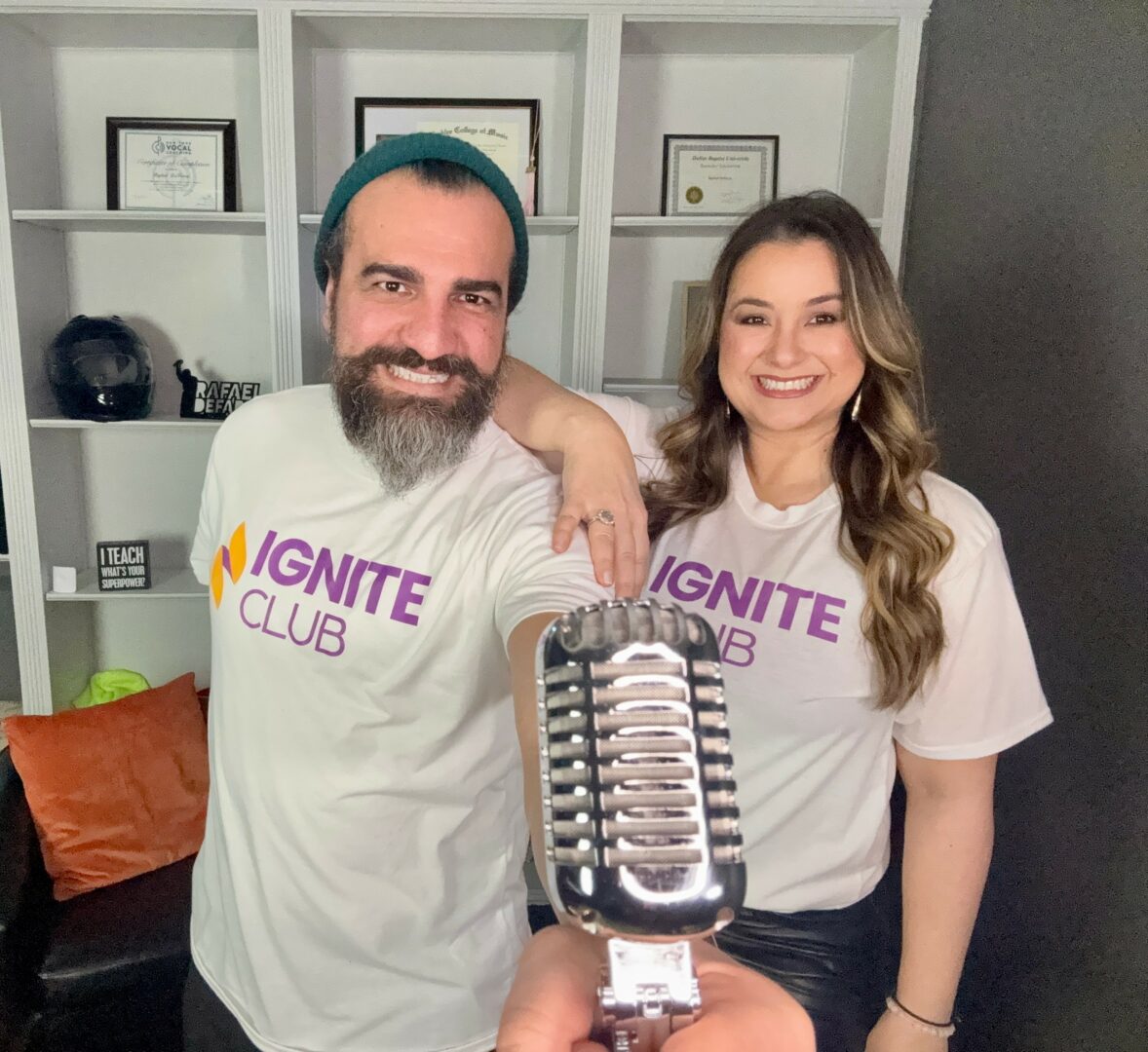We recently connected with Amanda Rodriguez and have shared our conversation below.
Hi Amanda, thanks for sitting with us today to chat about topics that are relevant to so many. One of those topics is communication skills, because we live in an age where our ability to communicate effectively can be like a superpower. Can you share how you developed your ability to communicate well?
Wow, what a great question. Gosh, if we all were able to communicate effectively, I really believe we’d experience a lot more connection and understanding in this world. I love the word “develop” here, because it highlights that communicating effectively is truly a skill.
I used to think that effective communication was letting everyone know how I felt and what I thought 100% of the time. Hah!
I’ve since learned that holding my tongue and DECIDING when to speak is way more effective. I’ve also learned to use a style of communication that elicits way less defensiveness in my partner and those around me. It’s called Nonviolent Communication (NVC).
Nonviolent Communication (NVC) is a style of communication developed by Marshall Rosenberg. It is called “nonviolent” because it is based on the principle that the natural state of compassion is when no violence is present in the heart. And violence, is not just physical violence, but also linguistic violence such as criticism, insults, judgments, threats, blame, and ultimatums. It’s a way of being in the world that has the purpose to create connection in such a way that everyone’s needs can be met. It aims to foster empathy, understanding, and cooperation in relationships.
In the parent-child relationship, it’s called nonviolent because these communication tactics are forms of conditional love and affect a child’s trust, their self-esteem and their willingness to cooperate.
There is a 4-step formula in NVC, but the three main keys (in my opinion) to be able to use it effectively are 1) actually knowing what it is we need, 2) communicating our feelings in a way that removes judgement from the other person and 3) being able to press pause on our feelings, find calm within ourselves, then speak at the *right* time
These keys are something I work on in depth in my 12-week Transformational Parenting Program. Who woulda thought it is really difficult to identify our feelings and needs?
Anyway, I attempt to use NVC and decide to speak at times when those around me can take in what I’m saying, rather than reacting in the heat of the moment.
I was also in several years of therapy, which was so helpful in understanding myself on a deeper level. And lastly, I’ve been guided by mentors who are excellent communicators. Sometimes, you just need someone to model what good communication actually looks like.
Taking the words of my mentors and speaking them out loud felt SO awkward at first. It was as if I was trying to speak Russian and had no basic training. Everything I said felt disingenuous. Like, is this ME talking?
But with practice, it began to feel much more natural. Now, it really is just a part of who I am.
While I can’t say that I’m always an effective communicator with those who have the most interactions with me on daily basis, when I’m not speaking kindly or I do open my mouth at the wrong time, it is absolutely something I recognize and am able to find compassion for myself for. I am able to reflect and understand how the other person felt, and apologize without self-deprecating.
If this is something any of your readers are resonating with, I’d love to support them in learning these skills, too.

Appreciate the insights and wisdom. Before we dig deeper and ask you about the skills that matter and more, maybe you can tell our readers about yourself?
I help parents break negative generational patterns by giving them a transformational experience and tools to parent their children in a way that feels good to them. Many parents I work with want to do things differently or better than how their parents did, but they don’t have an effective roadmap to do that. I do! I work in conjunction with the Jai Institute for Parenting, the organization that certified me, to offer informational videos and a workbook that go along with 1-on-1 or couples coaching with me personally. I truly LOVE what I do – it is my soul’s life work and I bring so much love and understanding to my clients.
The work is for individuals to be the parent they really want to be (to not yell, to feel confident, to have tools and skills, to have a deep and connected relationship with their children, to find more harmony and love in their homes, to become more aligned with their partner and more!)
A recent client said – “Wow! I just met with Amanda for the first time, and I am already feeling so relieved and hopeful about how she can help me parent better when dealing with challenges at home that have just been growing over the years. Sometimes it takes some searching to find a good fit for a therapist or coach, but Amanda is so empathetic and supportive right off the bat, I can’t imagine anyone not clicking with her. Amanda made it feel safe to open up about some of my fears and the parenting moments I’m not proud of, and she was not only 100% non-judgmental, but helped me work through my uncomfortable tears in a way that felt very cleansing and productive. I thought I would get a handful of suggestions for how to handle my kiddos, but I was surprised that we started with a bit of my own history and beliefs, because, well yeah, why wouldn’t that be helpful?
If you’re wondering if you could use some support in your family regarding parenting, then I’m sure you could – because we all could! – and I highly recommend Amanda for the process.”
Parents who’d like to see if I’m a good fit to work with them can book a call with me here – https://calendar.app.google/kHhDKEYy3bLpYm6v8

Looking back, what do you think were the three qualities, skills, or areas of knowledge that were most impactful in your journey? What advice do you have for folks who are early in their journey in terms of how they can best develop or improve on these?
1) Learning how to speak a language that removed threats, bribes, punishments, demands and shame. I had no idea what to say and I really needed someone to model this for me
2) Going inward to understand who I was and why I am the way that I am
3) Learning real skills in emotional regulation – i.e. how to transform anger into calm in only a few minutes, rather than stewing and playing the victim in my life. *hint – it’s not just about breathing
Oooh my advice? Everyone’s journey is so different, and I don’t know much about your readers’ goals, socioeconomic status, religious upbringing, culture, or if they’re even parents, etc. so it’s hard to give blanket advice. I’ll do my best here. I think my advice would be to read the book Nonviolent Communication by Marshall Rosenberg, and start listening to podcasts that help you to understand yourself better. Then, recognizing that it’s ok to ask for help. Coaching is an incredibly effective and more streamlined way to achieve these goals, too, so whether it’s with me or someone else, this is definitely something I’d recommend if someone has the means for it!

Who is your ideal client or what sort of characteristics would make someone an ideal client for you?
My ideal client is a cycle breaker. Someone who wants to overcome negative parenting patterns but is feeling challenged by their child’s behavior. The challenges could be anything from toddler sleep issues, to back talk, defiance, or aggression. Someone who is willing to work on themselves to find ways to overcome yelling, corporal punishment, rewarding, and control tactics to change this behavior, but doesn’t know the empowered and more peaceful way to gain their child’s cooperation. If you want to feel confident that you’re doing this parenting thing right, I’ve got you! Let’s chat <3
Contact Info:

Image Credits
Catherine Rose Photography
so if you or someone you know deserves recognition please let us know here.




